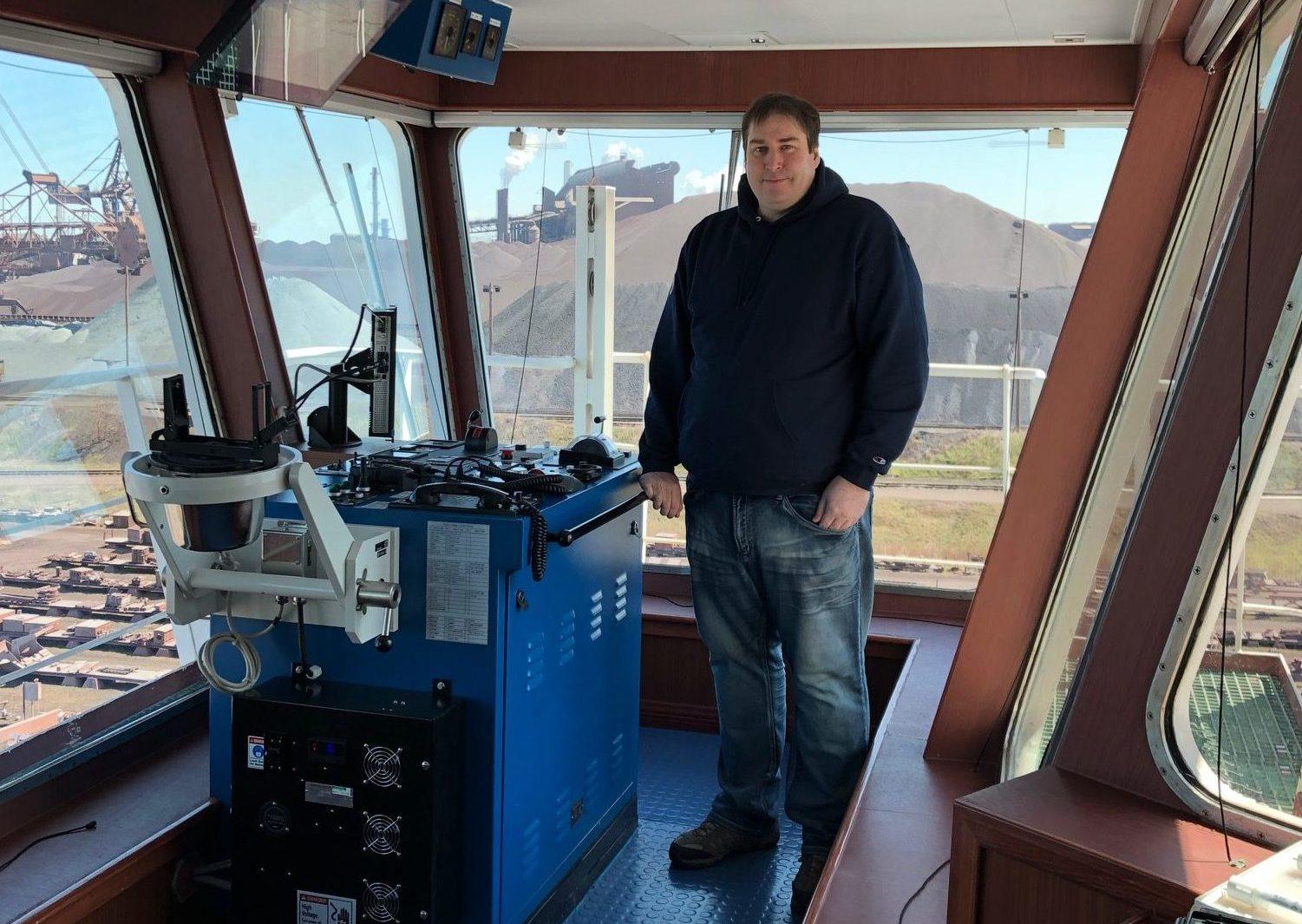
Canadian ship operators have created a detailed set of best practices to protect their crews and shoreside employees during COVID-19.
board the Algoma Niagara, it’s business as usual and business “unusual.”
The 20-strong crew of this Great Lakes self-unloading bulker, owned by Algoma Central Corporation, are carrying on with their normal routine of transporting iron ore pellets from Port Cartier and Sept-Iles, Quebec for steel production in Contrecoeur near Montreal. Next stop, delivering iron ore concentrate to the blast furnaces of Burns Harbor, Indiana. But with the COVID 19 pandemic underway, they are operating in a far different world than they’ve ever encountered before.
After boarding in March, Captain Kirk Lake was soon putting in place a host of new procedures to ensure his crew, who range from 21 to 63 years of age and hail from all over Canada, remain safe on the frontlines. Strict cleaning procedures. No one visits each other’s crew cabin. Social distancing is followed at all times. All paperwork is done electronically, and only people that are essential to the safe operation of the ship, such as an inspector or a pilot, can come onboard. Screened in advance, those visitors must board from the external stairs and never enter the accommodation block where the crew lives.
“We’re very isolated from the rest of the world,” says Lake. “Everyone’s happy. The company is providing us with anything we need so no one has to go ashore. We’ll get our supplies and groceries delivered directly to us in Port Colborne.

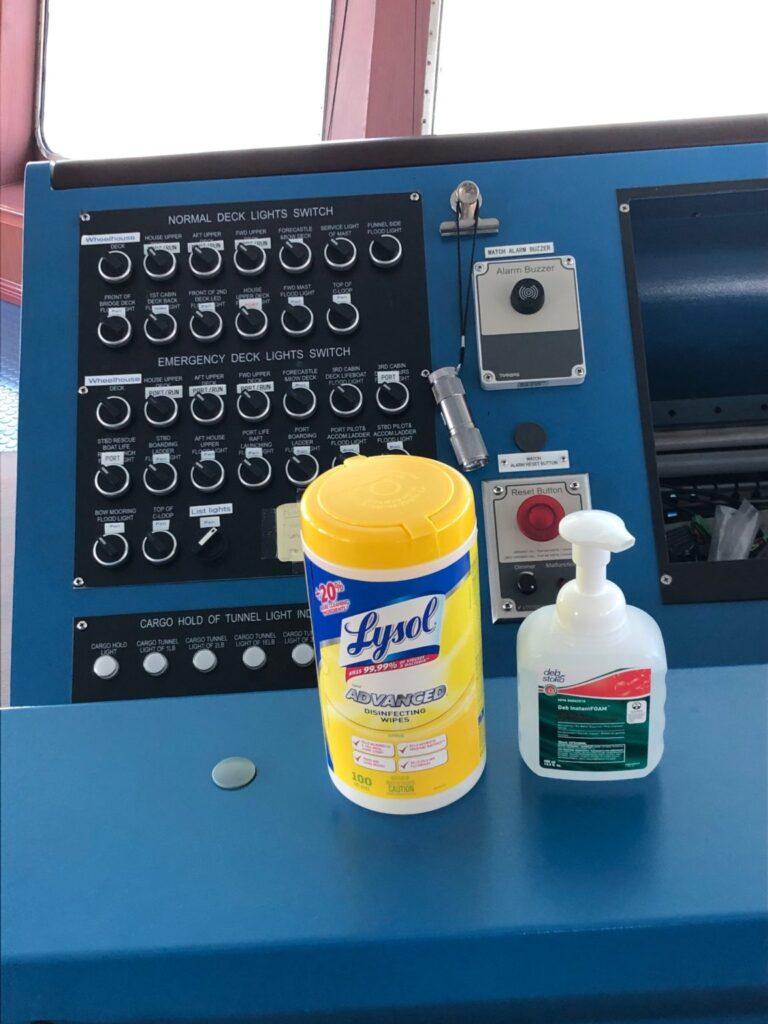
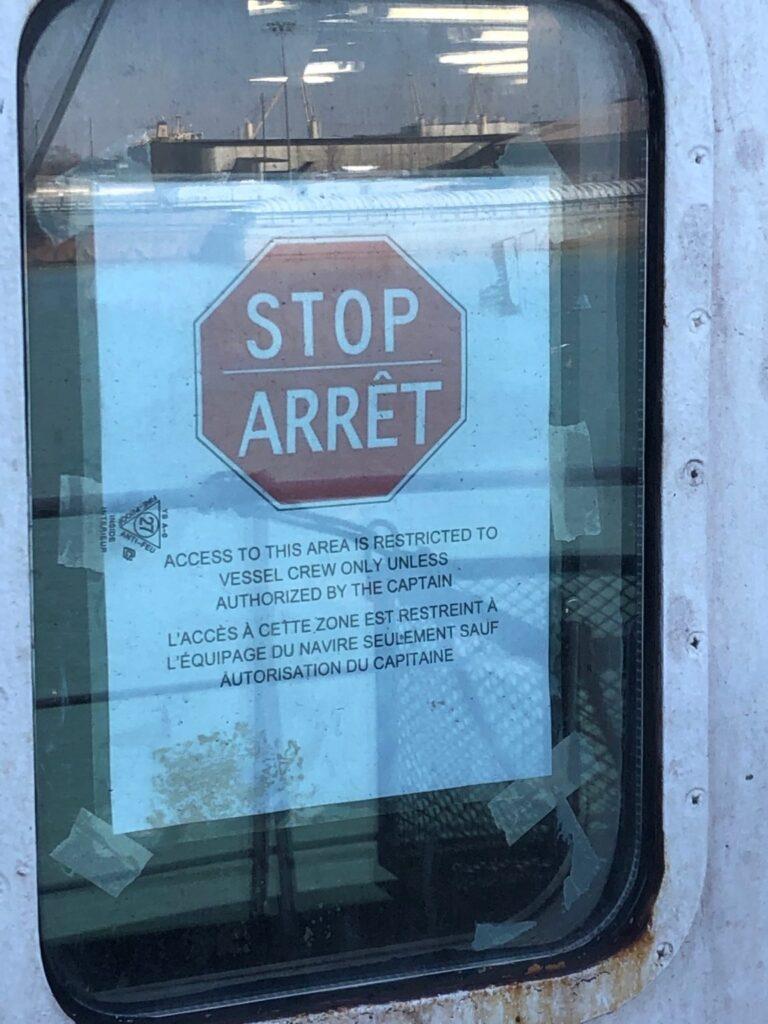
Algoma Central is one of a group of Canadian ship operators that have collaborated to create a detailed set of best practices to protect their crews and shoreside employees during COVID-19.
Fleets from Canada Steamship Lines, Rand Logistics, Inc., Groupe Desgagnés, McKeil Marine, McAsphalt Transportation Services, Sterling Fuels are all part of the initiative, which was led by the Chamber of Marine Commerce. More than 85 Canadian-flag ships are participating – ranging from tug and barges and tankers to bulk carriers and general cargo vessels — all delivering goods throughout the Great Lakes, St. Lawrence, and the East Coast.
The best practices cover every eventuality:
CMC also worked with its ship operators to develop the Marine Industry Trusted Partners for COVID-19 initiative, which sets out to help assure ship owners, governments and other stakeholders (including the public) that a mutually-agreed standard of protection, is being followed during ship-shore interactions that are required to ensure the safe operation of a vessel.
It has attracted participants including ports, ship operators, pilotage authorities, tug operators, ship inspectors, and marine services/suppliers, along with the public support of The St. Lawrence Seaway Management Corporation and Transport Canada.
“We really applaud the effort of the Chamber of Marine Commerce for their leadership in bringing all the ship owners together to develop these best practices and integrate them into their operations,” says Serge Le Guellec, President of Transport Desgagnés Inc., a subsidiary of Groupe Desgagnés. “It sends the message to the public that we’re all in this together to protect our workers and the communities that we serve.”
Desgagnés also implemented similar best practices for its nine international vessels sailing in Europe, South America and China – supplying crews with gloves, glasses, masks and putting in place sanitary measures in late February.
Le Guellec adds that the Best Practices document and Trusted Partners initiative will also help inform planning currently underway with federal authorities and local communities to prepare special protocols for the Sealift campaign to deliver vital goods to Arctic communities starting at the end of June. “The public need to know that a lot of work is going on to make sure the Sealift, which is so important to these communities, is going to be done safely.”
Burlington-based McKeil Marine, which operates ships, tugs and barges in the Great Lakes-St. Lawrence and East Coast, was particularly struck by how companies in the marine industry have helped each other with information, resources and operational experience.
“There has been a lot of collaboration between the ship operators. We are competitors but we all understand how important it is to protect our employees,” says Sonya Gillis, Vessel Management Systems lead and a key member of McKeil Marine’s COVID-19 Response Team. “All of the different company crews all know each other, so I think it’s also reassuring to our industry’s entire workforce that everyone is following the same standards.”
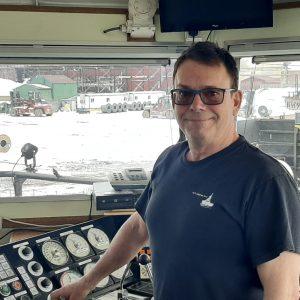
Captain Ray Davis on the bridge of the tugboat Sharon M as it picks up cargo at Algoma Steel in Sault Ste. Marie

Captain James Ryan sails on Canada Steamship Lines’ CSL Assiniboine
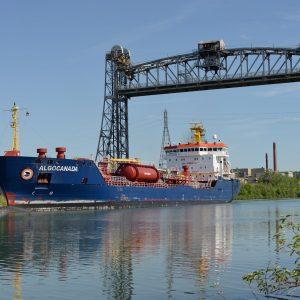
AlgoCanada transports petroleum products in the Great Lakes-St. Lawrence region